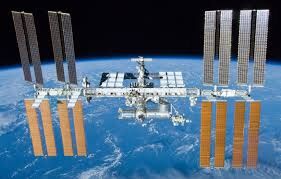Doorway to the new frontier

As even the most general of all knowledge on the matter would inform, space is vast. Absurdly so. As a species that is yet to fully even explore its nearby celestial bodies, we are not even at the doorstep of the vast frontier of space. As being tied to one planet has its disadvantages and humanity is fast wearing out is welcome on its homeworld, space is the eventual answer to the problems of humanity. This is precisely what makes the International Space Station quite so exciting in the many different things it represents. At 73 metres of length and 108 metres of width, it is human kind's first true space in the stars beyond our world. It is a monument to the collective effort of humanity which is governed by international treaties and born of a project between five different space agencies. As of 2019, people from 19 different nations have visited the International Space Station at least once. In a way, Coming amid the Cold War, it is easy to see how the ISS lends itself to a unique brand of politics that are played over the use of the ISS. To say the least, these politics have limited the international nature of this space station and has led to many budding space powers to announce their space station initiatives. But on November 2, 2000, when Sergei Krikalyov, Yuri Gidzenko and William Shepherd blasted off to the ISS for the start of the manned operation, the focus was very much on establishing cooperation in space. The first team had to overcome barriers of speech and culture but ultimately provided the working foundation for many more manned missions that followed. Now in 2020, the ISS has completed 20 years of being a manned operation. This means that humanity has, without interruption, remained in space for the last 20 years. This,of course, has meant extending the life of the ageing structure with new modules and repair and finding innovative workarounds to the many problems of continuously living in space, with situations of broken toilets particularly gathering interest back on earth.
Of course, the ISS is not simply a giant, expensive bit of novelty to demonstrate human ingenuity. Though it cannot be doubted that it is both giant and expensive. While not exactly on the scale of Space Station V from 2001 Space Odyssey, the ISS is so large that it is visible from the ground with the naked eye ever so often. Only having been 'completed' recently, the final cost for the station stood at over USD 100 billion and it takes around USD 4 billion in annual maintenance costs and service flights. All this has not only gone into making human habitation possible but also in running one of the finest labs that have ever been setup. This has allowed the iSS to cooperate with over 100 institutes worldwide in thousands of experiments and studies which are only made possible in space. NASA has recently stated that at any one point, over 250 scientific investigations are being investigated on the ISS.
Much of this research is admittedly focused on space itself. Some of the early research on the ISS was regarding the effects of space on the human body and various other materials. Innovations in the recycling of plastics and carbon dioxide filtration also fall into this category. But the ISS and its various modules have carried out even more diverse research, delving into smart materials in its materials science module or researching new medical technologies. In the future, the ISS could well be the testing ground for the technology of 3D printing actual organs. All this begs the oft-repeated question. Beyond the publicity stunts and a few 'limited' experiments, is the ISS worth the cost and the hype? There is extremely divided opinion on this matter with both sides largely centring on just how important the ISS is to the next stage of human's going to space. As organisations like NASA look to the Moon and Mars beyond, there is little doubt that the knowledge gained through the ISS is the foundational block. Now, NASA has expressed hope that private players will eventually take over running the ISS as NASA looks beyond. With many nations including India looking to getting their outposts in space in this 21st-century space race, there is little doubt that ISS will go down in human history as our first, true step to what lies beyond.



